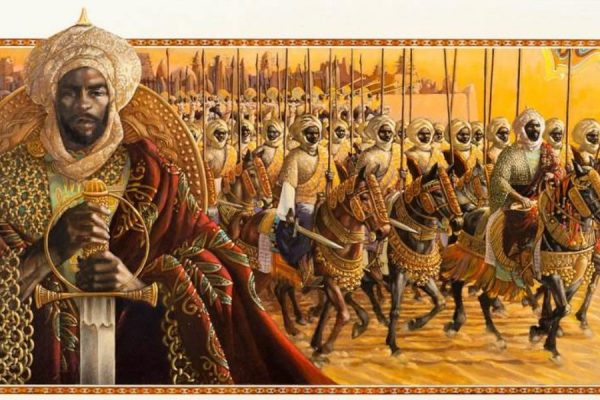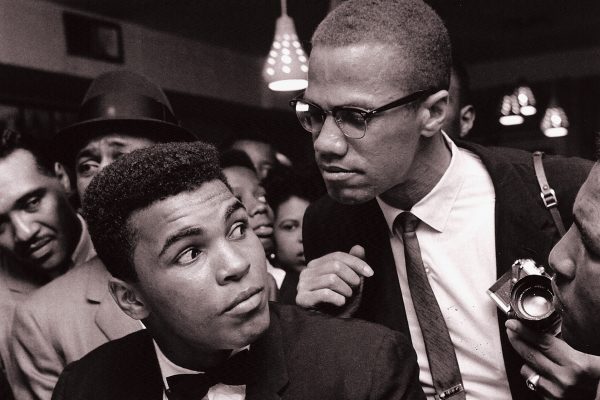American Muslims are an accepted part of American society. However, we are not the go-to community for moral leadership. The main deterrent to that is our failure as a general body, to openly address the issue of racism within our ranks.
American Muslims are an accepted part of American society. However, we are not the go-to community for moral leadership. The main deterrent to that is our failure as a general body, to openly address the issue of racism within our ranks.
As the American battle with racism comes to a boil on the heels of yet another unarmed black man murdered by a white police officer, Muslim America has its own festering racial problem between Black American Muslims and converts to Islam, and between the larger Muslim American immigrant community.
The question of racism in Muslim America has never been fully unpacked as a national American Muslim conversation. Sure, it has been hinted at, pointed to, glossed over, generalized, and even headlined in articles here and there. Still, the issue has never been domestically unwrapped and laid bare so it could be subject to critical and compartmental examination. There has never been any resolution, reckoning, or healing.
One of the challenges facing American Muslims in dealing with racism in our mosques and in our own communities is that you cannot approach racism with a one-size-fits-all method. Our own dealings with race and racism in the United States should have taught us that. Racism in Muslim America lives in the trappings of Islam and under cover of the masaajid (mosques). It is as delicate as it is insidious, it’s refined as much as it is profane. It is a wide topic that spans the globe in breadth and is as diverse in its manifestations as the rainbow of races, and colors of the peoples who inhabit the nation’s mosques.
If America is an experiment, then Muslim America, with two distinctly different civilizational trajectories; one Black and indigenous, and the other, recent (50 years or less) immigrants, is even more of an experiment.
Racism in Muslim America has its own historical evolution. It has cracks and crevices where it hides, masquerades, and blends in with the scenery. It can act like a chameleon and go undetected until you look closely, or it can unabashedly bite you in the face. It will migrate from one institutional host to another institutional host. Sometimes you must hunt it down like a wild animal and corner it, and even then, it will fight you back. Racism does not back down easily except where there is taqwa (piety).
It takes a certain amount of moral courage the likes of which we as Muslims I am afraid, are in short supply for now, to tackle racism in our ranks. We can only do it in my view, as a morally mature people, but tackle it we must, and tackle it we will if it be God’s will.
Racism in Muslim America may not look exactly like racism in America in general or racism in the Arab world or in Europe, or in Asia, Africa, or anywhere else. Racism in Muslim America has its own unique historical and civilizational nuance which is why it deserves more than just a casual, anecdotal glance. Racism in Muslim America is the proverbial elephant in the room, and that elephant is poised to rot and stink the air from New York to Washington state, if we do not take the time and courage to meet it head-on.
My first article about racism in Muslim America [i] was published in 2002, on the heels of 9/11. It was a taboo topic then, and admittedly I was very careful in the way I worded the topic, and here we are 18 years later, and the issue of racism in Muslim America sits on our doorstep, like unopened mail.
Racism Muslim America is a heartfelt letdown for Black American Muslim converts and their accompanying generations, while at the same time, marginally acknowledged by the American Muslim immigrant community. Within the Black American Muslim and convert community, the conversation about racism in Muslim America has been well underway, but relatively one-sided. Any Black American Muslim will tell you unequivocally that racism is alive and well in Muslim America, as well as any other Muslim who is willing to be honest and not bound by the chains of political correctness.
As the conversation about race again takes center stage in the national news feed of the United States with the death of George Floyd at the hands of a white police officer in Minneapolis, the opportunity has again presented itself for Muslim Americans to catch up with the rest of the country on the matter of race, racism and race relations within our domestic faith practice. If we don’t rise to the occasion, we threaten to undo years of carefully orchestrated public relations portrayal of American Muslims as a new and unblemished citizenry who are part of the American experiment.
American Muslims are an accepted part of American society. However, we are not the go-to community for moral leadership. The main deterrent to that is our failure as a general body, to openly address the issue of racism within our ranks.
Black American Muslims are willing to have this conversation and have been having it amongst ourselves to the point of disgust, protest and revolt. Imams and leaders of the American Muslim immigrant community must be willing to reciprocate in a way that is past lip service photo-ops, and billboards. If we are to ever have hope in being an advanced civilization, we must be willing to engage in advanced conversation, no matter how painful.





